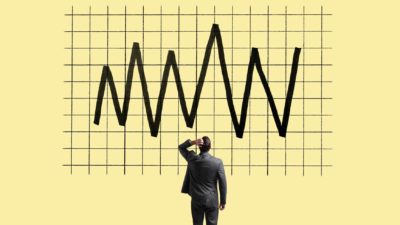It's our best asset. But it can also be our Achilles Heel.
'It' of course, is our brain. That wonderful, inexplicable grey mass that separates us from the rest of the animal kingdom.
And yet…
A theme I keep returning to, because it's so incredibly important in investing as in life, is the limitations of our evolved brains.
Don't get me wrong, they are wonderful, awesome machines. They are supercomputers on speed. Our ability to observe, synthesise, extrapolate, contextualise, react, plan, review and ponder, among much, much else, is just phenomenal.
But they come with limitations.
Perhaps chief among them, because of the impact it has on us, are the shortcuts our thinking subconsciously takes. And, related, the difficult task of really 'thinking about our thinking'. (No, this isn't a philosophy lecture. I'm getting to the life and investing bits, but the set-up is important.)
Behavioural psychologists know — and it's instinctively true when you think about it — that our brains quickly hardwire our habits, to free up processing space.
Imagine if, first thing in the morning, you woke up, and had to think about each inhalation and exhalation. Then you had to think about the very act of sitting up — individually and consciously activating each muscle, in turn, each time you used it. But don't forget the breathing thing while you do it.
Then there are the decisions of whether and how to get to the kitchen, making toast, coffee, and the rest. Without innate behaviours, patterns, and subconscious thoughts, you'd have to methodically do everything. Just getting ready for work would take all day, and leave us mentally exhausted.
So, our brains have developed a way to do all that, subconsciously. Thank god.
Now to the 'thinking about thinking' part.
See, none of the above is a surprise, or even controversial. And we all know that much of our day is governed by those subconscious, often learned, behaviours that leave our brain free to think about the new, the big and the challenging.
However, somehow — probably due to ego — many of us are not prepared to accept that those subconscious thoughts and habits actually influence our very thinking.
But, of course, they do.
My experiences, tendencies, emotions and preferences are part of who I am. I can't excise those from my instinctive decision-making process, and neither can you.
It should not be a surprise that many who have overcome the odds believe that people should similarly pull themselves up by their bootstraps.
Or that those who've struggled their whole lives think the odds are stacked against them. (And, right now, you're already judging those last two statements, based on your preconceptions, aren't you?)
It's why, to use a lightning-rod example, the 'trickle down' theory of economics has been so pervasive for four decades: people want to believe it because it's how they think the world should work.
But, in reality, it doesn't.
I use that example because I've been on that intellectual journey. I wanted to believe that 'growing the pie' was the answer. I did believe it. For many years. I could rationalise it, explain it and justify it. And, deep down, it just made sense that it should be true.
But, of course, it isn't. And here's where you have a choice to make: are you going to accept the reality, or stick your head in the sand and pretend you don't know better?
Sound harsh?
It's not meant to be — but it is meant to be honest. And I'm not just having a go at the 'trickle down' mob. It's true right across the ideological spectrum.
An example from the other side of politics: you only have to ask Labor supporters why their party lost the last Federal election.
The answer tends to be 'They should have done more of the things I like'.
Which may be true, but that misses the point that they're already the True Believers (to coin a phrase). Isn't it just possible that the realpolitik of elections means that convincing one party's voters to change sides requires something different to what would delight the rusted-on members?
In both cases, that which seems obvious to us, based on our experience and worldview, isn't necessarily right.
And that takes us to the investing bit.
Are you a 'value' investor?
A 'growth' investor?
Do you think things 'should' be a certain way?
Do you own a company that 'should' be winning, but isn't?
Are you investing because of how 'you' think or act, rather than how the whole market does?
Those terms are all in inverted commas, because they indicate pre-determined or self-referenced worldviews. They are things we have already decided are true/best/real.
And that's not even unreasonable.
As I said, our brains need to work out shortcuts to help us live our lives. We can't, every morning, wake up and look at every one of the almost 2,000 companies on the ASX from scratch. So we start by applying some rules of thumb to cut down on the mental load.
The trick, of course, is remaining open to changing our minds.
As John Maynard Keynes said, "When the facts change, I change my mind. What do you do, sir?"
As an investor, though, it's hard to balance having enough conviction to invest in a company with the preparedness to change your mind. How can you do both at once, without falling victim to cognitive dissonance?
The answer is a phrase I've adopted: "strong opinions, loosely held". That is, analyse the information and come to a firm view. And act on it.
But know what you expect. Be rigorous.
Be ready to either change your mind, and/or recognise when you're wrong.
And don't fall in love with either the companies you own, or the thesis you formed. If they're wrong, the faster you acknowledge that, the less money you stand to lose, and the more likely you are to redeploy that cash into better opportunities.
But remember to choose an objective, evidence-based yardstick. Don't let the market tell you how to invest.
Or those on social media.
Or even how you wish the world was.









